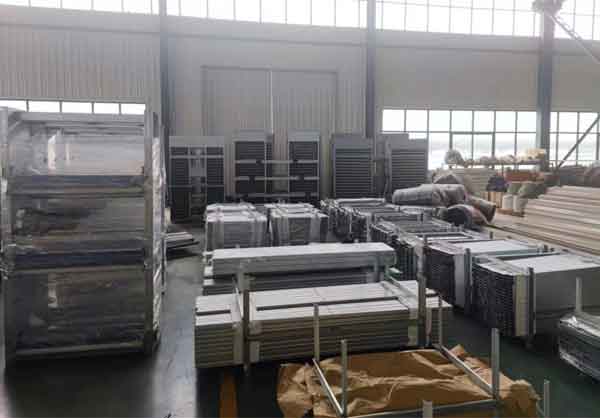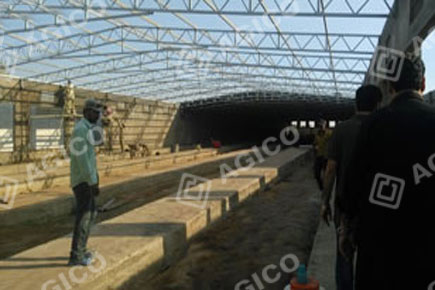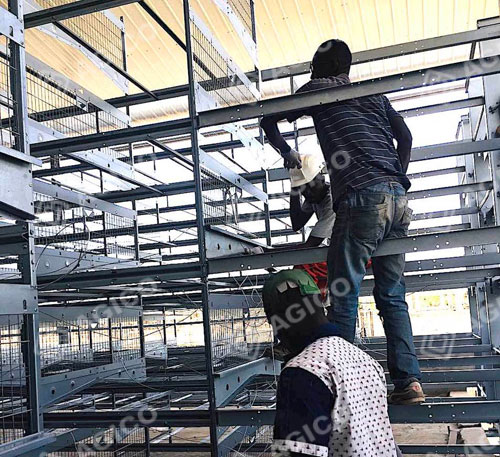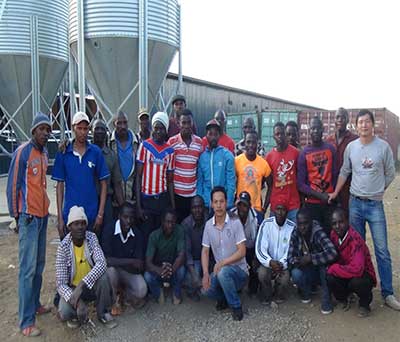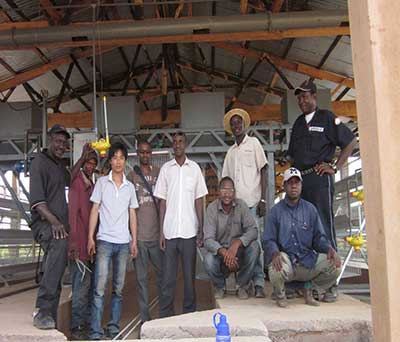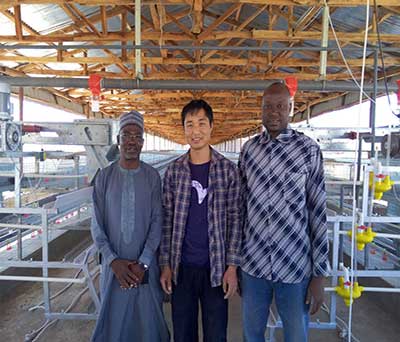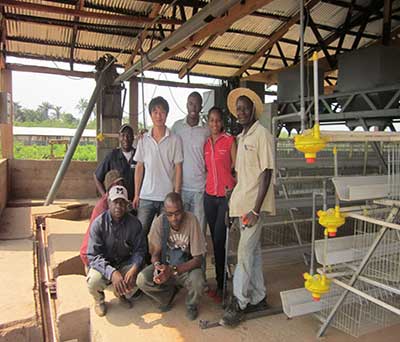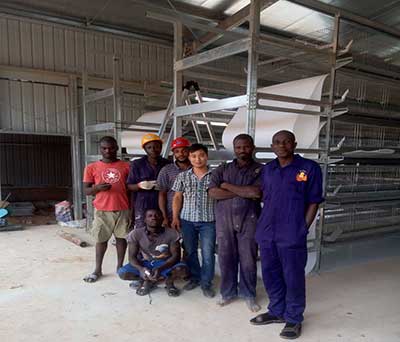If you’re planning to raise chickens, investing in a quality chicken cage is essential to keep them healthy and safe. With so many options available, it can be challenging to choose the right design for your chickens. In this guide, we’ll cover everything you need to know about chicken cages design, from the different types of cages available to the materials used and important features to consider.
Learn about the different types of chicken cage designs available, including materials, sizes, and important features to consider. This comprehensive guide covers everything you need to know to keep your chickens healthy and safe.
Raising chickens can be an enjoyable and rewarding experience, but it requires proper care and management. A quality chicken cage can make a significant difference in your chicken’s health and safety. In this section, we’ll cover the basics of chicken cages and why they’re important.
Types of Chicken Cages
There are several types of chicken cages available, including traditional coop-style cages, A-frame cages, and mobile chicken tractors. Each type has its own benefits and drawbacks, depending on your specific needs.
Materials Used for Chicken Cages
Chicken cages can be made from various materials, including wood, plastic, and metal. Each material has its own unique advantages and disadvantages in terms of durability, ease of cleaning, and maintenance.
Chicken Cage Size
The size of your chicken cage is a critical factor in ensuring your chickens’ health and well-being. In this section, we’ll cover the recommended cage size for different chicken breeds and the space requirements for each bird.
Important Features to Consider
When choosing a chicken cage design, several essential features should be considered. These include ventilation, insulation, nesting boxes, roosting bars, and easy access for cleaning and maintenance.
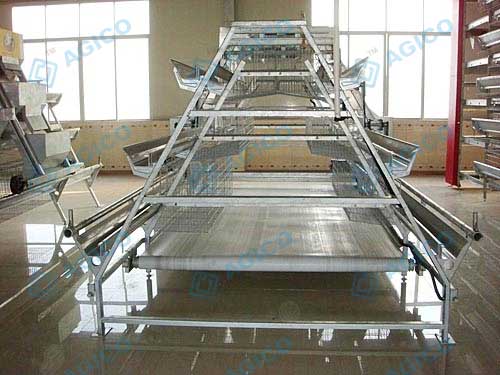
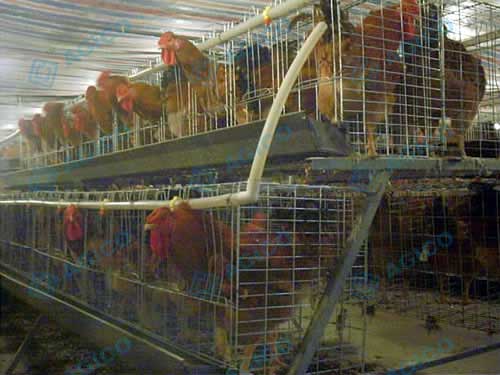
Benefits of Chicken Cages Design
Chicken cages offer several benefits for both chickens and their owners, including protection from predators, better egg production, and easier chicken management.
Common Chicken Cage Problems and Solutions
Like any other equipment, chicken cages may encounter various issues that can affect their functionality. This section will cover some common problems and solutions for chicken cages.
Maintaining Chicken Cages
Maintaining your chicken cage is crucial to ensure its longevity and the health of your chickens. In this section, we’ll cover some essential maintenance tips to keep your chicken cage in top condition.
Chicken Cage Accessories
Accessories can enhance your chicken’s living experience and make managing your chickens easier. Some popular chicken cage accessories include feeders, waterers, heaters, and lights.
Chicken Cages vs. Free-Range Chicken Raising
When it comes to raising chickens, there are two primary methods: using chicken cages or allowing chickens to roam freely in a free-range setting. Each method has its pros and cons, and the choice ultimately depends on your specific needs and preferences.
Chicken Cages
Using chicken cages is a popular method for raising chickens, especially for those with limited space or who live in urban areas. Chicken cages provide a safe and secure environment for chickens, protecting them from predators and other potential dangers. They also allow for easier management and maintenance of the birds, as well as easier egg collection.
There are several different types of chicken cages, including traditional wooden or plastic cages, as well as mobile chicken tractors that allow for easy movement of the birds. When choosing a chicken cage, it’s important to consider factors like size, ventilation, insulation, and access for cleaning and maintenance.
However, some people argue that using chicken cages is not the most humane method for raising chickens, as it limits their space and natural behaviors like foraging and dust bathing. Additionally, chickens living in cages may be more prone to stress and disease if not properly managed.
Free-Range Chicken Raising
Free-range chicken raising, on the other hand, involves allowing chickens to roam freely in a designated area or pasture. This method provides chickens with ample space and opportunity to engage in natural behaviors like foraging and dust bathing, which can lead to healthier and happier birds.
Free-range chickens may also produce healthier eggs and meat, as their diet is more varied and natural. Additionally, free-range chicken raising is often viewed as a more ethical and sustainable method of chicken farming.
However, free-range chicken raising also has its challenges. Chickens living in a free-range setting are more susceptible to predators and disease, and may require more management and attention to ensure their safety and well-being. Additionally, free-range chickens may not produce as many eggs as those living in cages.
Whether you choose to use chicken cages or opt for free-range chicken raising, the most important thing is to provide a safe and healthy environment for your chickens. Consider factors like space, ventilation, and access to natural behaviors when choosing a chicken cage, and be sure to properly manage and maintain your birds if you choose free-range raising.
Ultimately, the choice between chicken cages and free-range raising depends on your specific needs and preferences. Both methods have their benefits and drawbacks, so it’s important to carefully weigh the pros and cons before making a decision.
FAQs:
Q: What is the best material for a chicken cage?
A: The best material for a chicken cage depends on your specific needs and preferences. Wood is a popular choice for its natural insulation and aesthetic appeal, while plastic and metal cages are more durable and easier to clean.
Q: How many chickens can I keep in a chicken cage?
A: The number of chickens you can keep in a chicken cage depends on the cage size and the bird’s breed. Generally, one bird needs four square feet of space, but larger birds like Brahmas or Orpingtons may require more space.
Q: What features should I look for in a chicken cage?
A: Important features to consider include ventilation, insulation, nesting boxes, roosting bars, and easy access for cleaning and maintenance.
Q: Can I use a dog crate as a chicken cage?
A: It is not recommended to use a dog crate as a chicken cage as it may not provide adequate space or ventilation for your chickens.
Q: How often should I clean my chicken cage?
A: It is recommended to clean your chicken cage at least once a week, but the frequency may depend on the number of chickens and the size of the cage.
Q; Can chickens live outside of a cage?
A: Yes, chickens can live outside of a cage in a free-range setting, but it may not be suitable for all situations. Free-range chickens may be more susceptible to predators and may not produce as many eggs.
Q: Can I build my own chicken cage?
A: Yes, you can build your own chicken cage using various materials and designs. However, it is important to ensure the cage meets the necessary size and safety requirements for your chickens.
Q: Should I provide heating for my chicken cage in the winter?
A: It may be necessary to provide heating for your chicken cage in the winter, especially if you live in a colder climate. However, it is important to ensure the heating source is safe and does not pose a fire hazard.
Q: What is a mobile chicken tractor?
A: A mobile chicken tractor is a type of chicken cage that allows you to move your chickens to different areas of your yard or pasture. It typically has wheels and can be easily moved around.
Q: How long do chicken cages last?
A: The lifespan of a chicken cage depends on the materials used and the level of maintenance. Generally, a well-built and maintained chicken cage can last for several years.
Investing in a quality chicken cage is essential for raising healthy and safe chickens. When choosing a chicken cage design, it’s important to consider the materials used, cage size, and important features like ventilation and nesting boxes. By following the tips and guidelines outlined in this guide, you can ensure your chickens are happy and healthy in their new home. Remember to regularly maintain and clean your chicken cage to ensure its longevity and your chicken’s well-being.

